Skin In The Game - The Hidden Asymmetries of Life
Last updated: September 09, 2024 Read in fullscreen view
- 13 Oct 2021
 Outsourcing Software Development: MVP, Proof of Concept (POC) and Prototyping. Which is better? 40/486
Outsourcing Software Development: MVP, Proof of Concept (POC) and Prototyping. Which is better? 40/486 - 18 Oct 2020
 How to use the "Knowns" and "Unknowns" technique to manage assumptions 38/1090
How to use the "Knowns" and "Unknowns" technique to manage assumptions 38/1090 - 12 Oct 2022
 14 Common Reasons Software Projects Fail (And How To Avoid Them) 32/568
14 Common Reasons Software Projects Fail (And How To Avoid Them) 32/568 - 19 Oct 2021
 Software development life cycles 30/702
Software development life cycles 30/702 - 01 Oct 2020
 Fail fast, learn faster with Agile methodology 24/1047
Fail fast, learn faster with Agile methodology 24/1047 - 13 Dec 2020
 Move fast, fail fast, fail-safe 22/325
Move fast, fail fast, fail-safe 22/325 - 14 Oct 2021
 Advantages and Disadvantages of Time and Material Contract (T&M) 22/865
Advantages and Disadvantages of Time and Material Contract (T&M) 22/865 - 06 Feb 2021
 Why fail fast and learn fast? 20/451
Why fail fast and learn fast? 20/451 - 18 Aug 2022
 What are the consequences of poor requirements with software development projects? 20/274
What are the consequences of poor requirements with software development projects? 20/274 - 01 Mar 2023
 Bug Prioritization - What are the 5 levels of priority? 18/236
Bug Prioritization - What are the 5 levels of priority? 18/236 - 23 Sep 2021
 INFOGRAPHIC: Top 9 Software Outsourcing Mistakes 17/439
INFOGRAPHIC: Top 9 Software Outsourcing Mistakes 17/439 - 04 Oct 2021
 Product Validation: The Key to Developing the Best Product Possible 17/320
Product Validation: The Key to Developing the Best Product Possible 17/320 - 05 Sep 2023
 The Cold Start Problem: How to Start and Scale Network Effects 17/203
The Cold Start Problem: How to Start and Scale Network Effects 17/203 - 07 Oct 2025
 Case Study: Using the “Messaging House” Framework to Build a Digital Transformation Roadmap 17/86
Case Study: Using the “Messaging House” Framework to Build a Digital Transformation Roadmap 17/86 - 05 Mar 2021
 How do you minimize risks when you outsource software development? 16/336
How do you minimize risks when you outsource software development? 16/336 - 10 Nov 2022
 Poor Code Indicators and How to Improve Your Code? 16/231
Poor Code Indicators and How to Improve Your Code? 16/231 - 31 Aug 2022
 What are the best practices for software contract negotiations? 16/260
What are the best practices for software contract negotiations? 16/260 - 19 Oct 2021
 Is gold plating good or bad in project management? 15/816
Is gold plating good or bad in project management? 15/816 - 08 May 2024
 Time Unlocked: Mastering the Pomodoro Technique Against Parkinson's Law 15/235
Time Unlocked: Mastering the Pomodoro Technique Against Parkinson's Law 15/235 - 12 May 2024
 The Pros and Cons of the Creator Economy in the Age of AI: Opportunities, Challenges, and the Gray Zone with the Gig Economy 14/270
The Pros and Cons of the Creator Economy in the Age of AI: Opportunities, Challenges, and the Gray Zone with the Gig Economy 14/270 - 19 Apr 2021
 7 Most Common Time-Wasters For Software Development 14/556
7 Most Common Time-Wasters For Software Development 14/556 - 28 Jul 2022
 POC, Prototypes, Pilots and MVP: What Are the Differences? 13/699
POC, Prototypes, Pilots and MVP: What Are the Differences? 13/699 - 28 Oct 2022
 Build Operate Transfer (B.O.T) Model in Software Outsourcing 12/406
Build Operate Transfer (B.O.T) Model in Software Outsourcing 12/406 - 08 Oct 2022
 KPI - The New Leadership 12/603
KPI - The New Leadership 12/603 - 31 Oct 2021
 Tips to Fail Fast With Outsourcing 12/392
Tips to Fail Fast With Outsourcing 12/392 - 04 Oct 2022
 Which ERP implementation strategy is right for your business? 11/313
Which ERP implementation strategy is right for your business? 11/313 - 10 Dec 2023
 Pain points of User Acceptance Testing (UAT) 11/452
Pain points of User Acceptance Testing (UAT) 11/452 - 12 Dec 2021
 Zero Sum Games Agile vs. Waterfall Project Management Methods 11/410
Zero Sum Games Agile vs. Waterfall Project Management Methods 11/410 - 11 Jan 2024
 What are the Benefits and Limitations of Augmented Intelligence? 11/479
What are the Benefits and Limitations of Augmented Intelligence? 11/479 - 17 Feb 2022
 Prioritizing Software Requirements with Kano Analysis 10/304
Prioritizing Software Requirements with Kano Analysis 10/304 - 05 Jan 2024
 Easy ASANA tips & tricks for you and your team 10/201
Easy ASANA tips & tricks for you and your team 10/201 - 28 Dec 2021
 8 types of pricing models in software development outsourcing 10/437
8 types of pricing models in software development outsourcing 10/437 - 18 Jul 2021
 How To Ramp Up An Offshore Software Development Team Quickly 9/593
How To Ramp Up An Offshore Software Development Team Quickly 9/593 - 12 Mar 2024
 How do you create FOMO in software prospects? 9/167
How do you create FOMO in software prospects? 9/167 - 05 Sep 2024
 The Inverted Approach: A Guide to Identifying Software Risks with Reverse Brainstorming 9/255
The Inverted Approach: A Guide to Identifying Software Risks with Reverse Brainstorming 9/255 - 06 Mar 2024
 [SemRush] What Are LSI Keywords & Why They Don‘t Matter 7/176
[SemRush] What Are LSI Keywords & Why They Don‘t Matter 7/176 - 12 Aug 2024
 Understanding Google Analytics in Mumbai: A Beginner's Guide 6/99
Understanding Google Analytics in Mumbai: A Beginner's Guide 6/99 - 14 Mar 2024
 Why should you opt for software localization from a professional agency? 6/140
Why should you opt for software localization from a professional agency? 6/140 - 26 Dec 2023
 Improving Meeting Effectiveness Through the Six Thinking Hats 6/254
Improving Meeting Effectiveness Through the Six Thinking Hats 6/254 - 06 Nov 2019
 How to Access Software Project Size? 6/249
How to Access Software Project Size? 6/249 - 01 Dec 2023
 Laws of Project Management 5/303
Laws of Project Management 5/303 - 23 May 2024
 Mastering AI: Sharpening the Axe in the Digital Age 5/246
Mastering AI: Sharpening the Axe in the Digital Age 5/246 - 15 Aug 2025
 Quantum Technology: Global Challenges and Opportunities for Innovators 4/100
Quantum Technology: Global Challenges and Opportunities for Innovators 4/100 - 01 May 2024
 Warren Buffett’s Golden Rule for Digital Transformation: Avoiding Tech Overload 3/205
Warren Buffett’s Golden Rule for Digital Transformation: Avoiding Tech Overload 3/205 - 19 Apr 2024
 What is Skills-Based Approach & Why Does it Matter? 3/134
What is Skills-Based Approach & Why Does it Matter? 3/134
We frequently hear the expression "skin in the game," but we almost ever take the time to really think about it. It is the basis of risk management, but it’s also an astonishingly rich worldview that, as Taleb shows in this book, applies to all aspects of our lives. As Taleb states, "Never trust anyone who doesn't have skin in the game," and "The symmetry of skin in the game is a simple rule that's necessary for fairness and justice, and the ultimate BS-buster." Without it, fools and crooks will benefit, and their mistakes will never come back to haunt them.”
Skin In The Game - The Hidden Asymmetries of Life
Nassim Nicholas Taleb's book, The Black Swan, challenges many beliefs about risk, reward, politics, religion, finance, and personal responsibility. He cites examples from various historical figures and emphasizes the importance of accepting one's own risks for social justice. Taleb suggests that for social justice, focus on symmetry and risk sharing, as it is essential to own one's own risk and pay for losses. He also argues that ethical rules aren't universal and that minorities run the world. He also warns against being an intellectual but an idiot, warns against complicated solutions, and emphasizes that true religion is commitment rather than faith. The phrase "skin in the game" is a key principle in risk management and applies to all aspects of life.
This book focuses on identifying and filtering out superficial expertise, emphasizing the importance of genuine experience over mere appearances. It contrasts various concepts such as action versus cheap talk, practice versus theory, and ethical versus legal considerations. The author advocates for accountability and risk-taking in decision-making, arguing that those without "skin in the game" should not influence outcomes. The text critiques modern bureaucracy and the disconnect between decision-makers and the consequences of their actions. It highlights the value of learning through experience, the pitfalls of specialization, and the need for authenticity in endeavors. Ultimately, it suggests that societal progress is driven by a minority willing to take risks, rather than by consensus.
41 curated insights of Nassim Nicholas Taleb from his book, Skin In The Game - The Hidden Asymmetries of Life
- This book is all about bull shit identification and filtering.
- Difference between Cosmetic vs Real Expertise.
- Don't tell me what you 'think' - just tell me what's in your portfolio.
- This book is also about - How much information you should practically share with others.
- If you are paying a penalty when things go wrong, you have put skin in your game.
- This book is not all endlessly justifying anything. It is only taking us in non-linear fashion, building surprises. Not saying anything obvious is making it an adventure in itself.
- Action Vs Cheap talk
- Consequence vs Intention
- Practice vs Theory
- Honor vs Reputation
- Ethical vs Legal
- Genuine vs Cosmetic
- Entrepreneur vs CEO
- Authors vs Editors
- Quality vs Advertising
- Understanding the subtle yet powerful differences between these.
- Guide your learning through pain - the knowledge we get through tinkering, trial and error, experience and the workings of time is vastly superior to that obtained through reasoning, something self-serving institutions have been busy hiding from us.
- When you hear someone invoking abstract modernistic notions, you can assume that they got some education (but not enough, or in some wrong discipline) and have too little accountability.
- Those who don't take risks should never be involved in making decisions.
- Societies were always run by risk takers, not risk transferors.
- Even today, monarchs derive their legitimacy from a social contract that requires physical risk-taking. Because noblesse oblige.
- Bureaucracy is a construction by which a person is conveniently separated from the consequences of his or her actions.
- Decentralise or localise the system to directly expose the cost of errors to the decision makers, not making them immune to it.
- You will never fully convince someone that he is wrong; only reality can.
- The curse of modernity is that we are increasingly populated by a class of people who are better at explaining than understanding, or better at explaining than doing.
- Hammurabi's best known injunction: If a builder builds a house and house collapses and causes the death of the owner of the house - the builder shall be be put to death.
- Universal behaviour is great on paper, disastrous in practice.
- Avoid taking advice from someone who gives advice for a living, unless there is a penalty for their advice.
- You do not want to win an argument. You want to win.
- What matters in life is isn't how frequently one is "right" about outcomes, but how much one makes when one is right.
- The rule is: Those who talk should do and only those who do should talk.
- Architects today build to impress other architects, and we end up with strange - irreversible - structures that do not satisfy the well being of their residents.
- Specialisation comes with side effects, one of which is separating labour from fruits of labour.
- Things designed by people without skin in the game tend to grow in complication (before their final collapse).
- Skin in the game makes boring things less boring.
- If you do not take risks for your opinion, you are nothing.
- Having an assistant (except for the strictly necessary) removes your soul from the game.
- Assistance moves you one step away from authenticity.
- Entrepreneurs are heroes in our society. They fail for the rest of us.
- The skills at making things diverge from those at selling things.
- If you can't put your soul into something, give it up and leave that stuff to someone else.
- The reading of a single text twice is more profitable than reading two different things once, provided it has depth of content.
- One lauds merrily the merchandise to get rid of it.
- Laws come and go. Ethics stay.
- Tragedy of commons - we keep our private gardens far cleaner than our public parks. Individual interests outbeat collective interests always.
- Studying individual ants will almost never give us an indication of how an ant colony operates.
- A vegetarian will never eat non-vegetarian food. But a non-vegetarian can eat vegetarian.
- On a highway ride, McDonald's appears to be a safe bet. It is also a safe bet in shady places. You may hate McDonald's, but we certainly hate uncertainty even more!
- Society doesn't evolve by consensus or majority, only a few people are sufficed to disproportionately moving the needle.
- Revolutions are unarguably driven by an obsessive minority.
| About the Author | Krishna Kumar | CEO of GreenPepper + AI | Generative AI For Leaders | Krishna Kumar, Co-founder and CEO of GreenPepper, has 15 years of experience in driving innovation, growth, and leadership across industries. With over 3,000 professionals in over 200 companies, he has led 150+ transformative projects, conducted 50+ Generative AI workshops, and collaborated with institutions. Kumar also hosts Leadcasts and hosts a podcast series. |






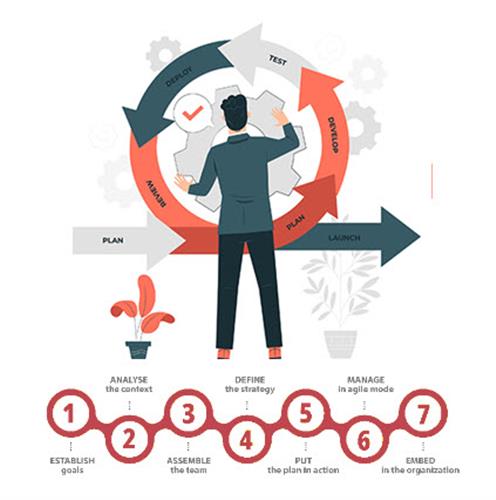








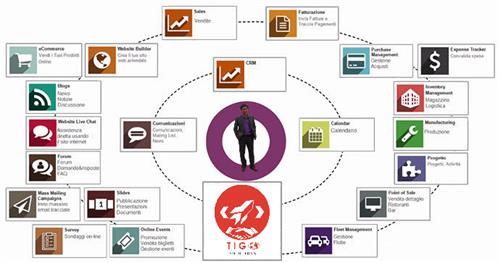

04102024050214_thumb.jpg)





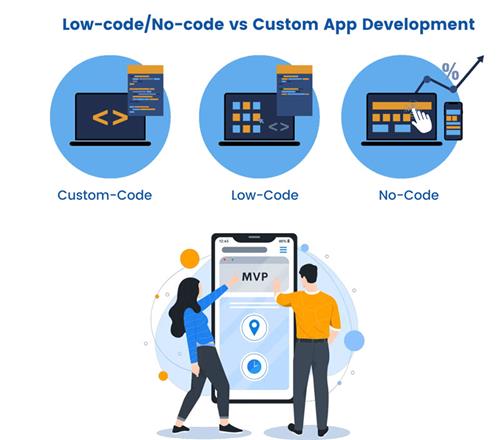
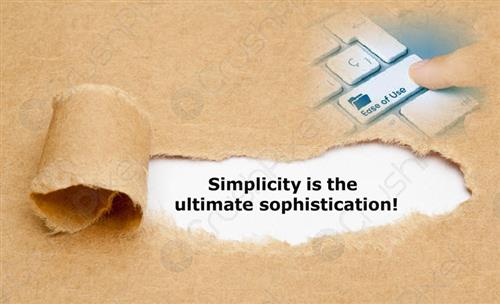









 Link copied!
Link copied!
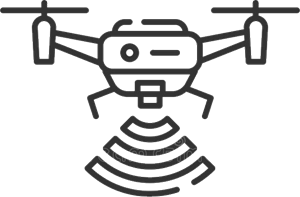 Recently Updated News
Recently Updated News